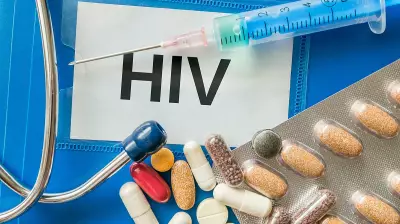
If you're living with Type 2 diabetes, there's a silent threat that could be putting your heart at risk without any warning signs. Medical experts are sounding the alarm about the dangerous connection between diabetes and silent heart attacks - a condition that strikes without the classic chest-clutching pain most people associate with cardiac events.
The Silent Danger You Can't Afford to Ignore
Unlike traditional heart attacks that scream for attention with crushing chest pain and shortness of breath, silent heart attacks operate like stealthy intruders. They cause damage to your heart muscle without the dramatic symptoms that would typically send someone rushing to the emergency room.
Why Diabetics Are Particularly Vulnerable
The connection between diabetes and silent heart attacks isn't coincidental. Several factors put diabetic patients at higher risk:
- Nerve damage (neuropathy): High blood sugar levels over time can damage nerve fibers, including those that transmit pain signals from the heart
- Autonomic nervous system dysfunction: Diabetes can impair the part of the nervous system that controls involuntary bodily functions, including heart response
- Chronic inflammation: Persistent high blood sugar creates an inflammatory environment that damages blood vessels
- Accelerated atherosclerosis: Diabetes speeds up the buildup of plaque in arteries
Recognizing the Subtle Warning Signs
While silent heart attacks don't announce themselves with dramatic chest pain, they often leave behind subtle clues that many people dismiss as minor discomforts:
- Unexplained fatigue or extreme tiredness
- Mild discomfort in the chest, arms, or jaw that comes and goes
- Shortness of breath during routine activities
- Nausea, indigestion, or heartburn-like sensations
- Cold sweats or dizziness
Protecting Your Heart: Essential Prevention Strategies
The good news is that being aware of this risk puts you in a powerful position to take preventive action. Here are key strategies recommended by healthcare experts:
- Regular cardiac screenings: Don't wait for symptoms - get comprehensive heart checkups annually
- Blood sugar control: Maintain HbA1c levels within your target range through medication, diet, and exercise
- Blood pressure management: Keep your blood pressure below 130/80 mmHg
- Cholesterol control: Monitor and manage LDL cholesterol levels
- Lifestyle modifications: Incorporate regular physical activity and a heart-healthy diet
The Importance of Proactive Healthcare
Medical professionals emphasize that people with Type 2 diabetes should adopt a proactive approach to heart health rather than waiting for warning signs to appear. Regular consultations with both your diabetologist and cardiologist can create a comprehensive defense strategy against silent cardiac events.
Remember: When it comes to heart health and diabetes, what you don't know can hurt you. Taking preventive measures today could save your life tomorrow.






